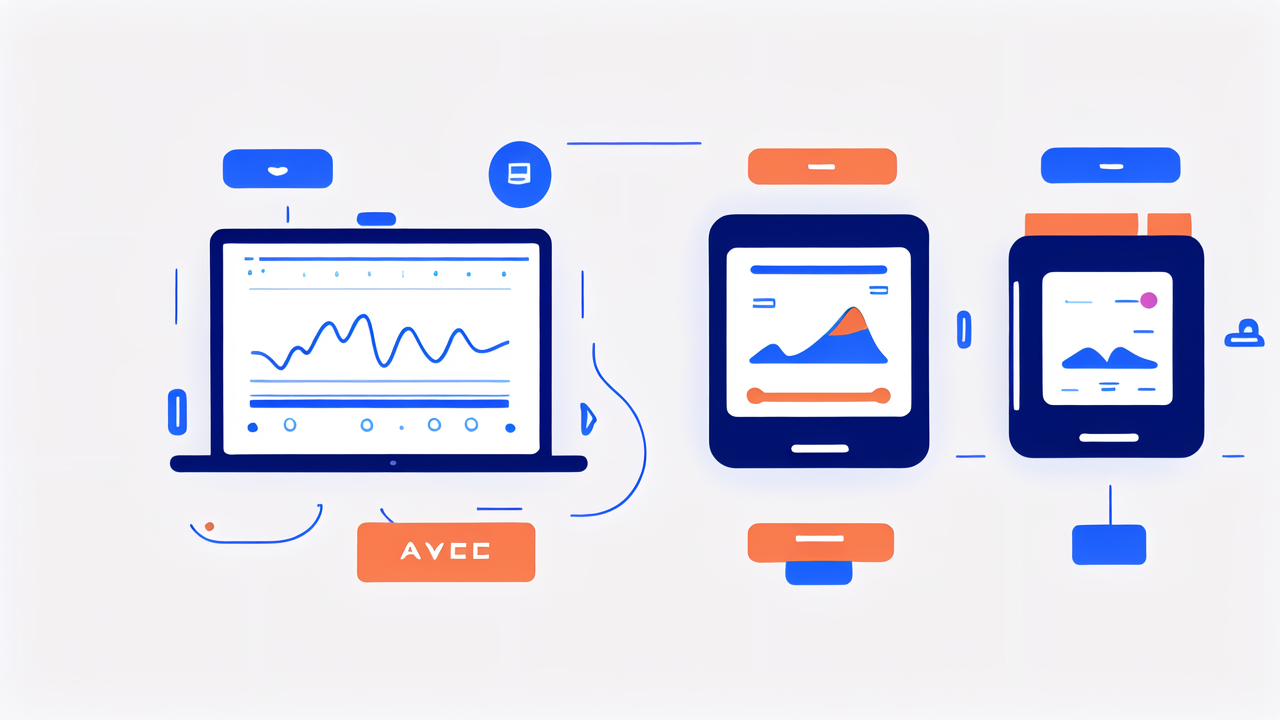The Evolution of Smart Watches: Revolutionizing Health and Wellness
The Rise of Wearable Technology in Healthcare
Smart watches have come a long way in recent years. They've become vital tools in healthcare. These devices now offer more than just step counting. They track heart rate, sleep patterns, and even blood oxygen levels.

Doctors now use data from smart watches to monitor patients. This helps them spot health issues early. Patients can also use these devices to manage chronic conditions. For example, people with diabetes can track their glucose levels.
The rise of wearable tech in healthcare is changing how we think about health. It's making health monitoring more accessible and personal. As the technology improves, we can expect even more health features in the future.
How Smart Watches Are Changing the Game for Consumers
Smart watches are empowering consumers to take charge of their health. They provide real-time data about our bodies. This information was once only available at doctor's offices.
Now, people can track their fitness goals daily. They can monitor their heart health and sleep quality. Some watches even detect falls and call for help in emergencies.
These devices are also motivating people to be more active. They send reminders to move and celebrate fitness milestones. This gamification of health is making wellness more fun and engaging.
Smart watches are also becoming more stylish. This makes people more likely to wear them every day. The more people wear them, the more data they collect, and the more useful they become.
The Importance of Accurate and Reliable Data in Wearable Technology
As smart watches become more popular, the accuracy of their data is crucial. People rely on this information to make health decisions. Inaccurate data could lead to unnecessary worry or false security.
Leading smart watch makers invest heavily in improving sensor accuracy. They work with medical experts to validate their devices. Many watches now have FDA clearance for certain health features.
Reliable data is also important for research. Scientists use data from smart watches in health studies. This helps them understand trends and patterns in large populations.
Companies must also ensure data privacy and security. Users need to trust that their health information is protected. This is especially important as smart watches collect more sensitive data.
Key Features of Leading Smart Watches for Health
Advanced Health Metrics and Wellness Tracking
Top smart watches offer a wide range of health metrics. Here are some key features:

- Heart rate monitoring
- ECG (electrocardiogram) readings
- Blood oxygen level tracking
- Sleep analysis
- Stress level monitoring
- Menstrual cycle tracking
These watches can detect irregular heart rhythms. Some can even measure your blood pressure. Advanced sleep tracking can identify different sleep stages and potential sleep disorders.
Wellness tracking goes beyond just physical health. Many watches now offer features for mental well-being. This includes guided breathing exercises and mindfulness reminders.
Some watches can track your body temperature. This can help detect early signs of illness. Others can measure your VO2 max, which indicates cardiovascular fitness.
Integration with Healthcare Systems and Apps
Smart watches are becoming more connected to the broader healthcare ecosystem. Many can share data directly with your doctor's electronic health records system.
This integration allows for better communication between patients and healthcare providers. Doctors can get a more complete picture of a patient's health between visits.
Leading smart watches also work with popular health and fitness apps. This includes apps for nutrition tracking, workout planning, and meditation. Users can sync their watch data with these apps for a more holistic view of their health.
Some insurance companies now offer incentives for using smart watches. They may provide discounts for meeting certain activity goals. This further encourages people to stay active and healthy.
Lifestyle Coaching and Personalized Recommendations
Modern smart watches do more than just collect data. They use artificial intelligence to provide personalized health advice. This turns them into mini health coaches on your wrist.
These watches can suggest workout routines based on your fitness level. They can recommend when to go to bed to improve your sleep quality. Some even provide tips on reducing stress based on your heart rate variability.
Many watches offer challenges and achievements to keep users motivated. They might suggest increasing your daily step goal or trying a new workout. This gamification helps make health and fitness more engaging.
Some advanced models can detect potential health issues. For example, they might notice changes in your heart rhythm. The watch can then suggest seeing a doctor for a check-up.
Navigating the Market: What to Look for in a Smart Watch for Health
Understanding the Differences: Features That Matter
When choosing a smart watch for health, consider these key features:

- Sensor accuracy: Look for watches with proven track records in health monitoring.
- Battery life: Long battery life ensures continuous health tracking.
- Water resistance: This is important for swimmers or those who shower with their watch.
- Compatibility: Make sure the watch works with your smartphone and preferred health apps.
- Display quality: A clear, easy-to-read screen is crucial for quick health checks.
- Comfort: The watch should be comfortable for 24/7 wear.
Some watches focus more on fitness, while others emphasize general health tracking. Think about your specific health goals when choosing a watch. If you have a chronic condition, look for watches with relevant features.
Price is also a factor. More expensive watches often offer more advanced health features. However, many affordable options still provide solid health tracking capabilities.
The Impact of Wearable Technology on Personal Health
Wearable technology is changing how people think about their health. It makes health data more accessible and understandable. This can lead to better health awareness and motivation.
Many users report being more active after getting a smart watch. The constant feedback and goal-setting features encourage healthier habits. This can lead to improvements in fitness and overall well-being.
Smart watches can also help detect health issues early. There are stories of people discovering heart problems thanks to their watch. This early detection can be life-saving in some cases.
However, it's important to remember that smart watches are not medical devices. They should not replace regular check-ups with healthcare professionals. Instead, they should be seen as tools to complement traditional healthcare.
Recommendations for Consumers Seeking Health-Focused Smart Watches
When shopping for a health-focused smart watch, consider these tips:
- Research the accuracy of health sensors in different models.
- Read user reviews to understand real-world performance.
- Check if the watch is compatible with any health apps you already use.
- Consider your specific health needs and choose a watch with relevant features.
- Look for watches with good battery life to ensure consistent health tracking.
- Choose a watch that's comfortable for all-day wear.
- Consider the watch's water resistance if you plan to swim or shower with it.
Remember, the best smart watch is one that you'll wear consistently. Choose a model that fits your lifestyle and health goals. With the right smart watch, you can take a more active role in managing your health and wellness.




Leave a comment
This site is protected by hCaptcha and the hCaptcha Privacy Policy and Terms of Service apply.